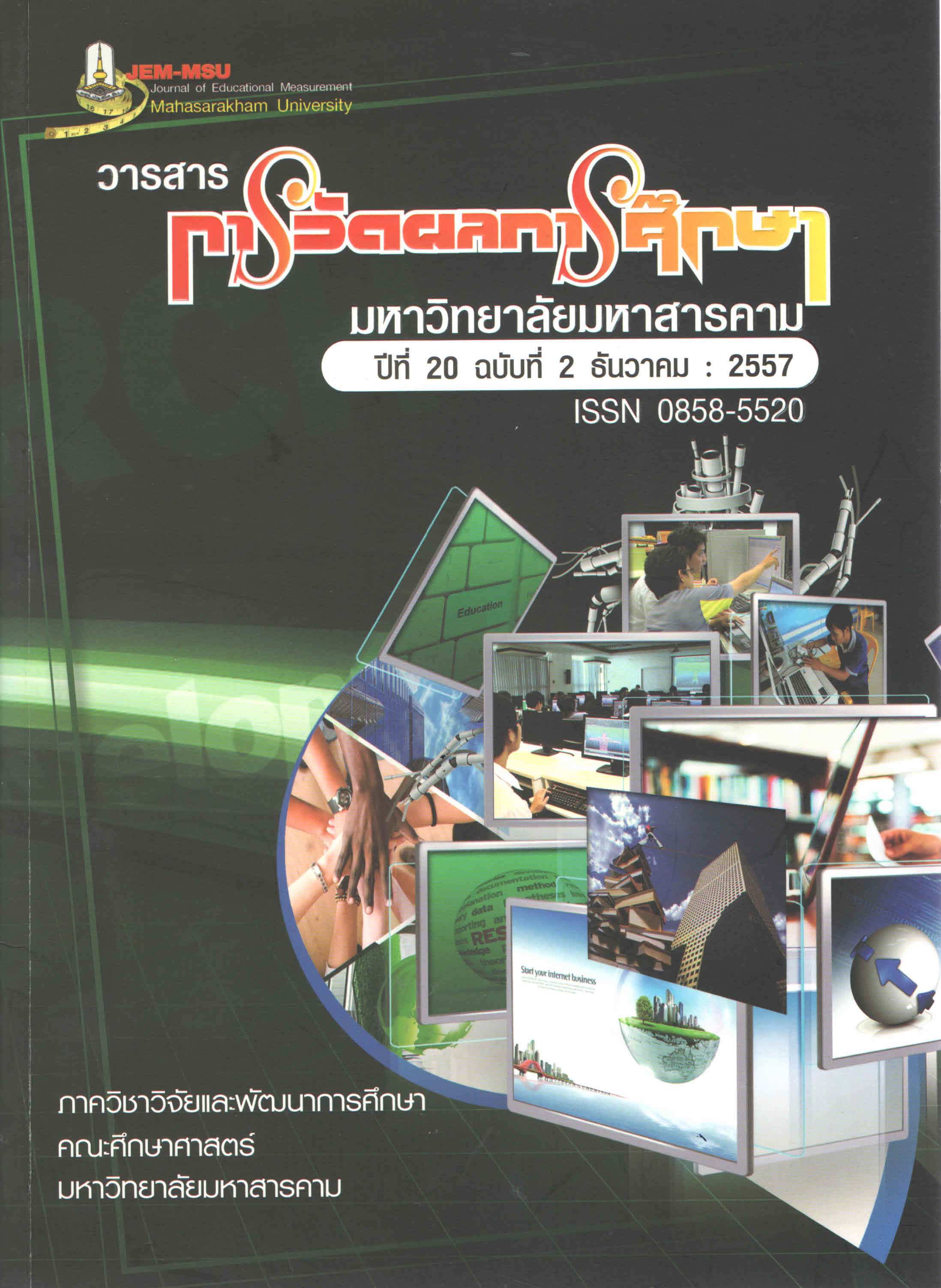A Development of Teenage Counseling Competency for Secondary School Advisory-Teachers in Chonburi Province.
Main Article Content
Abstract
The two main objectives of this research were 1) to study the teenage
counseling competency 2) to develop the teenage counseling competency of
secondary school advisory teachers in Chonburi Province. The samples used in
process of studying counseling competency consisted of 370 advisory teachers in
secondary schools in Chonburi Province, and in the process of developing
competency included 30 advisory teachers. The instruments used in this study
were the test of teenage counseling competency with reliability of 0.86 and the
course to develop counseling competency. The statistics used in data analysis
were percentage, mean , standard deviation and t-test dependent . Results of the
research were as follows: 1.The majority of samples were female (76.50 %) whose
marital status was married (64.40%) with the period of operation 11 years and over
(58.9 %), mostly graduated bachelor degree (78.74%) and never been trained in
counseling (81.70%). The survey of counseling problems in secondary schools
revealed that the highest average problem was workload (mean = 4.45) which
advisorys can not consult to students who call for support, followed by problem
with the time provided to students as a major obstacle to the success of
counseling (mean = 4.37). The problem with lowest average including to serve
both as advisory and instructor which advisory can not teach efficiently (mean =
2.56) The overall of counseling competency for teenage students was at the low
level (mean = 2.21). When considered by each component, it revealed that the
competency of advisory in term of knowledge about teenage counseling was at
low level (mean = 1.81), in term of counseling skills was at low level (mean =
1.67). The attitude toward teenagers counseling and attributes to provide
counseling by the advisor were moderate (mean = 2.78 and 2.86). ๒. Results in the
development of teenage counseling competency showed that after the Advisory
has attended a workshop, the competency of the advisory both in overall and
each aspects before and after period were statistically significantly different at .05.
Article Details
The content and information contained in the published article in the Journal of Educational Measurement Mahasarakham University represent the opinions and responsibilities of the authors directly. The editorial board of the journal is not necessarily in agreement with or responsible for any of the content.
The articles, data, content, images, etc. that have been published in the Journal of Educational Measurement Mahasarakham University are copyrighted by the journal. If any individual or organization wishes to reproduce or perform any actions involving the entirety or any part of the content, they must obtain written permission from the Journal of Educational Measurement Mahasarakham University.


